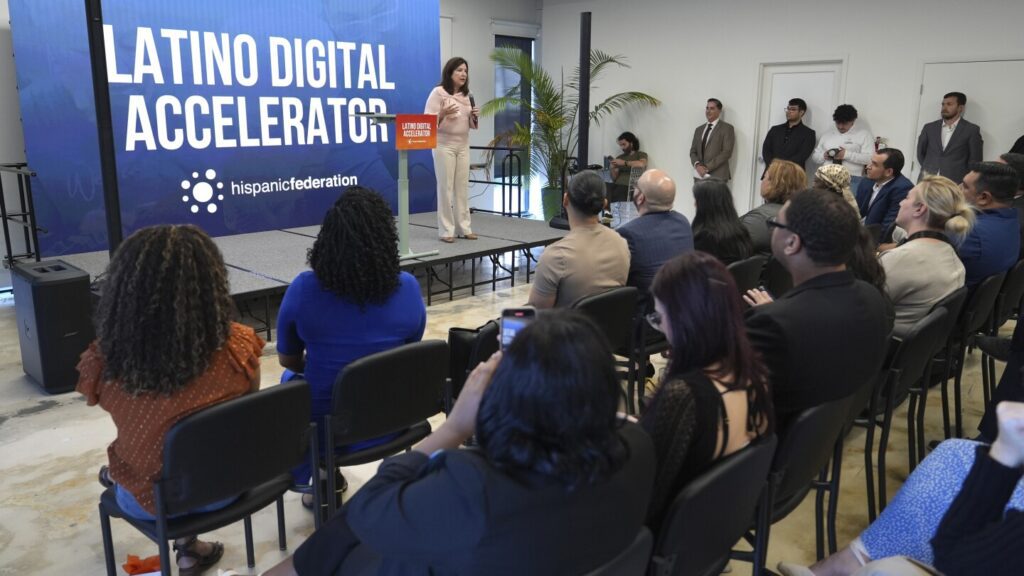Bridging the Digital Divide: The Automation Challenges Facing Latino Workers
As society becomes increasingly dependent on technology, many Latino workers find themselves at a disadvantage due to limited digital skills and accessibility issues. A recent report from the University of California, Los Angeles, highlights how Latinos, who play crucial roles in agriculture, construction, retail, and food services, are particularly vulnerable to job displacement from automation.
Automation Risks for Latinos
The UCLA Latino Policy Institute’s analysis reveals a stark reality: Latinos are overrepresented in jobs that face a high risk of being automated. According to Misael Galdámez, co-author of the report titled “On the Frontlines: Automation Risks for Latino Workers in California,” automation presents not just a technological challenge but also a matter of equity. With barriers such as limited English proficiency and gaps in education, Latino workers are at the forefront of this transformation.
Consider the case of Valerie Gills, a 32-year-old former hotel receptionist from Phoenix. After her hotel implemented self-check kiosks and AI chatbots to streamline operations, Valerie found herself out of a job—a clear indication of how rapidly changing technology can disrupt livelihoods. "I knew businesses were always trying to improve efficiency," she reflected, "but it seemed to me as though technology was taking opportunities away from us."
The Shift to New Opportunities
While automation can lead to job displacement, it can also pave the way for new roles and better conditions. Ramiro Cavazos, president and CEO of the United States Hispanic Chamber of Commerce, emphasized the necessity of equipping Latino workers with technology skills to thrive in the evolving job landscape. He noted, “Latinos have made great progress as we become more educated and skilled,” and there is increased focus on creating pathways for them in emerging fields.
Faced with the reality of her situation, Gills recognized that she needed to upskill. She successfully landed an internship as a blog editor and is now on the lookout for tech programs focused on data analytics and software development, eager to stay competitive in the shifting job market.
Apprenticeships as a Solution
Many organizations are stepping up to address these challenges. The U.S. Department of Labor has previously championed apprenticeship programs tailored for Latinos, guiding them toward high-paying careers. Manny Lamre, former deputy assistant secretary for employment and training, expressed optimism about these initiatives, stating, “We want to meet individuals where they are and help them learn new skills.”
Organizations like Miami Ed Tech are particularly vital in this effort, offering paid apprenticeships in industries like AI, data science, and web design. As founder Carlos Vasquez noted, these opportunities allow workers to earn while they learn, meeting both employer needs and workforce demands.
Addressing the Digital Divide
Addressing the digital divide is crucial in empowering Latino communities. Diana Caba, vice president for community and economic development at the Hispanic Federation, shared that they’ve successfully trained 35,000 individuals, with many securing new jobs and higher salaries. She emphasized that as automation looms, increasing the digital acumen of the Latino community is imperative.
Real-Life Change
Dylan Pravia, a mechanical engineering student at Florida International University, shared how his internship at Miami Ed Tech launched his career in tech. “Talent is everywhere, and we should give (Latino) students as much training as they can,” he explained passionately.
However, the journey isn’t without challenges. Gills, while aware of the benefits of technology, expressed concerns over the rapid pace of change and the diminishing prospects for low-skill jobs. “Retraining workers needs better support. These times with automation and AI feel very unreliable and constantly changing,” she highlighted.
Final Thoughts
As we move forward in a digital-first world, it’s vital to ensure that Latino workers do not get left behind. Bridging the gap in digital skills and providing robust training programs can open new doors for economic mobility and job security.
With initiatives focused on education, skills training, and apprenticeships, there’s hope for a more inclusive future. As Cavazos aptly stated, “It’s crucial to teach Latinos more digital skills to evolve with the workforce.”
The AI Buzz Hub team is excited to see where these breakthroughs take us. Want to stay in the loop on all things AI? Subscribe to our newsletter or share this article with your fellow enthusiasts.




